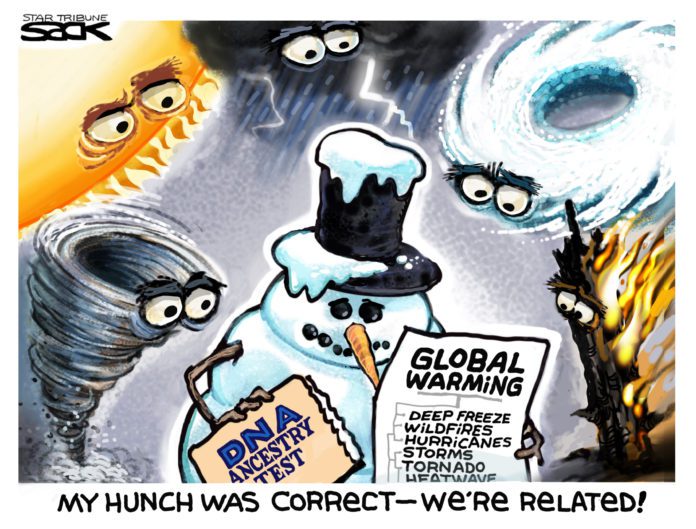The heat is on. And we have seen the deep freeze to prove it.
We, Duncanites, were among the luckiest in a two-state area during and after the February deep freeze. My unofficial reckoning showed 283 straight hours at freezing or below. My yard got about eight inches of snow. But I had electricity – and heat – throughout and plenty of potable water.
Still, I am now joining many folks around town watching our pine trees with dread and hope. There are a lot of bronzed pine needles on display – two of the three trees in my front yard turned overnight.
Maybe we’ll get a spring rebound; maybe not.
I like pine trees. My college days were spent deep in the East Texas Piney Woods. [I am a Lumberjack.] And I spent another 19 years in pine tree country.
But pine trees are not native to semi-arid southwest Oklahoma. I have spent every summer watering my pines resentfully through the dry spells – while raking up the shed needles fooled by wet springs. Turns out that random big freezes might prove just as effective deterrents to a pine invasion of the backside of the crosstimbers. [And the dry spells probably had our trees weaker than they looked.]
A place for everything and everything in its place. The pines in our yards [mine pre-dated me] were planted deliberately under the all-too-common delusion that Nature serves at our beck and call.
Sure, last month was a record-setting freeze, but our records barely go back 100 years. And the absence of pine trees before our ancestors arrived indicates their innate unsuitability to our area.
Furthermore – ignoramuses such as Sen. Snowball aside – climate change-inducing global warming increases the likelihood of more severe winters [more and worse] in the future.
Hayes Brown of MSNBC explains: “So, imagine a swirling mass of frigid air over the Arctic being held in place by an invisible force field. Sometimes the air manages to slip a bit under the shield and drift down North America. That, in simplified terms, is what happened here: A pocket of the polar vortex, which the air of the jet stream normally holds in place, got loose and decided to visit the U.S.
“It’s a totally natural phenomenon, which is the good news. The bad news is that the jet stream has been getting weaker over the last few years as the areas on both sides of it have gotten warmer. That has made it easier for warm air over the Arctic to shove the colder air south, fragmenting the vortex. And so, while the jury is still out on whether we’re seeing a true surge in freak cold snaps, the number of times you’ve heard the term ‘polar vortex’ has skyrocketed since 2014.”
Brown points out the obvious: “Adapting to climate change means America’s cities and states will have to embrace the idea that there is no such thing as stability from year to year, not anymore.”








